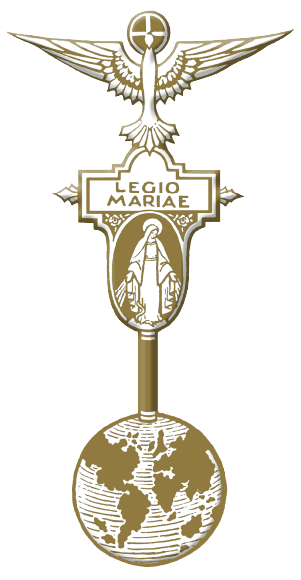September Allocutio 2024
Our Lady of Sorrows
Fr. Paul Churchill, Concilium Spiritual Director
Yesterday was the Feast of the Exaltation of the Holy Cross and normally today would be the Feast of Our Lady’s Sorrows. So a few reflections centred on that Feast may not be out of placed today.
Let me start with the name Mary. In Our Lord’s time the Aramaic word for Mary was Myriam. The first use of that name in the Bible seems to belong to that of Moses’ sister who is called Miriam. The first reference to her is in Exodus 15 where she is described as the sister of Aaron who has already been referred to as Moses’ brother. In the very first explicit reference to her she is the one who makes that great hymn of praise we use at Easter: “Sing to the Lord, for he has triumphed gloriously” (Ex 15:21). But while that is the first explicit reference to that name, we can speculate whether she is that same sister mentioned much earlier who managed to save her baby brother from the Nile delta, who got the young Egyptian princess to pay a hebrew women to mind baby Moses, who was in fact his own mother (Ex 2:1-10).
Where did that name Miriam come from? If like the name Moses is comes from an Egyptian source it is likely based on a root-term in ancient Egyptian meaning “beloved of”. Interestingly the actual phrase used by the archangel Gabriel in greeting Mary can be translated as “Hail, full of grave” but also as “Hail. O favoured one!” That would suggest that in its deep roots the name Mary means “Beloved” or “Favoured” one. Surely that comes as no surprise!
But if adopted initially from an Egyptian source where it meant “beloved of”, it came to have a slightly different meaning in the Hebrew language where its roots suggested “bitterness”. You can almost hear its meaning to the third of the gifts proffered by the wise men: myrrh. That leads to this reflection: did the three gifts of the wise men have three different destinies. The frankincense can be seen as the appropriate gift offered to the God-man since incense is used in worship. The gold as the gift not out of place for the head of the family, St. Joseph. Myrrh is used to heal, to embalm and to perfume. So, the myrrh woukd have been appropriate for the woman of the house.
On this Feast day of the Sorrows of Our Lady we can wonder at the depth in that name Our Lady bore. Yes, a most beloved one of God but also destined to suffer the bitterness of the sword that pierced her own heart as she was not spared the anguish of Calvary. There is a profound truth in there somewhere. Someone so beloved that they are called to suffer. I hear St. Teresa of Avila comment, “Lord, if this is how you treat your friends, it is no wonder you have so few of them!” And indeed one of the signs of someone close to God is the level of suffering they endure. We can think of Padre Pio. Frank Duff always held that when we suffer it is a sign of grace soon to be given. When we suffer we do well to remember that it is not a sign of having been abandoned by God but as a sign of how much we are beloved.
Let me now address something in no way unimportant. Is Our Lady, because of her sinlessness and her perfect charity and humility, someone who is not really one of us? Does her pure bearing of her suffering make her inaccessible to us? Is she so above us that she is superior to us? As I looked at this question I could almost hear her say, “Oh no. You must not look on me that way. And my heart recoils at the idea that in some way I do not belong to the rest of you. No, I am one of you and I am as creature as you are and I belong to a people who have been afflicted by sin and its terrible consequences. My sufferings and bitterness at what I witnessed on Calvary make me one of you. And believe you me I do not look down my nose at any of you who fall into sin in any way since had it not been for that special grace given me I might have been as bad or even worse than any of you.
“Listen, hear what I have to say to you. When I see you fall into sin I only feel a mother’s sorrow for the hurt you inflict on yourself and the morass of its consequences. And when I see a soul try to find a way back and persevere in its struggles to become a soul of humility and charity I act before God asking him to help that soul win its victory. And when it wins the fight, I see it as having done something I never achieved and greatly admire and love it for that. Never forget those words of my son who said, ‘There is more rejoicing in heaven over one sinner who repents than over ninety nine who did not need to repent’.
“God has so arranged things that I had one path, you have another. And for us all without any exception the road to heaven is marked by the sign of the Cross, something, one way or another, we all have to share in. You heard my son say that to you at Mass today in the Gospel. There is no exception to that for you or for me. On this feast of my sorrows remember that!”

